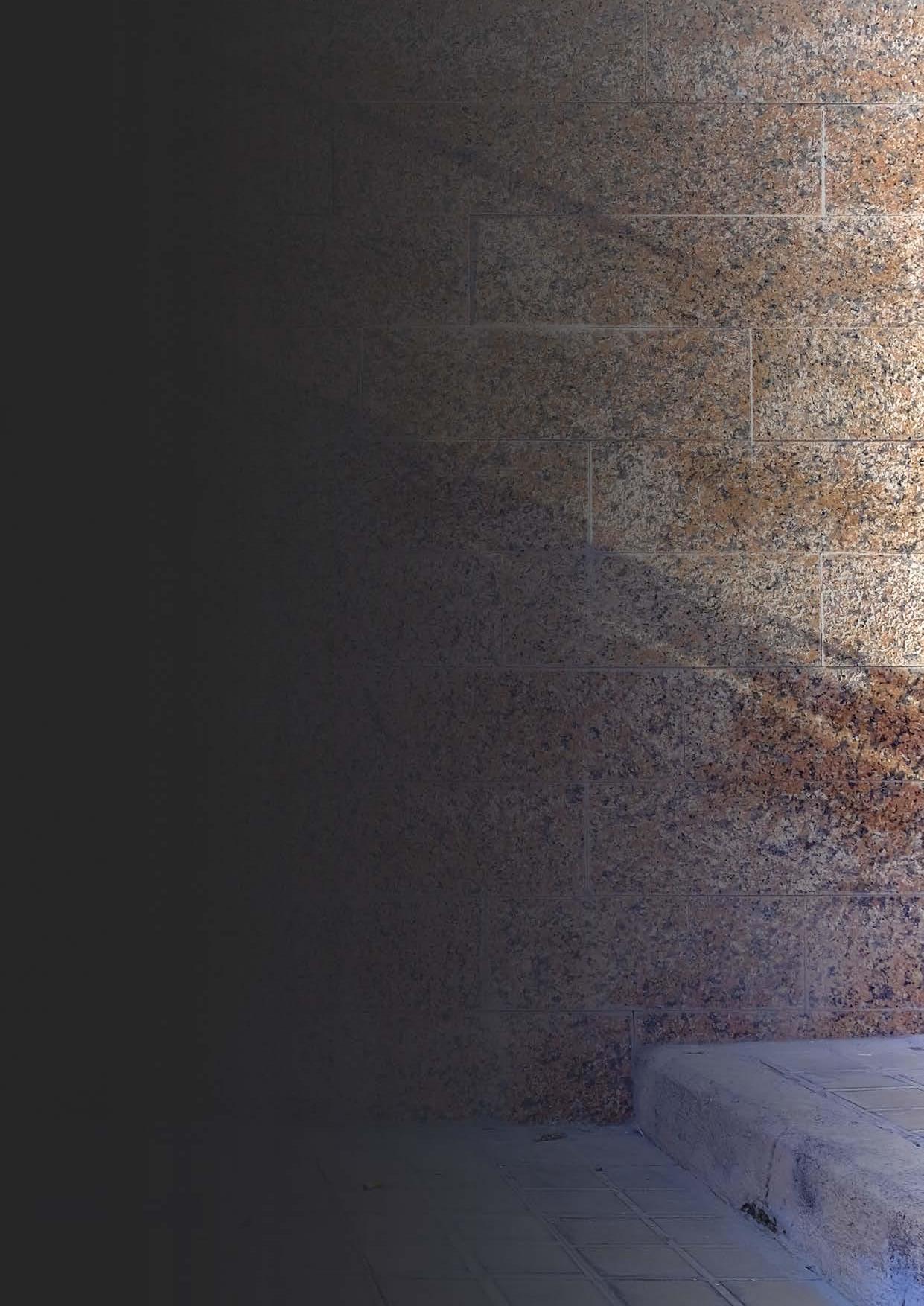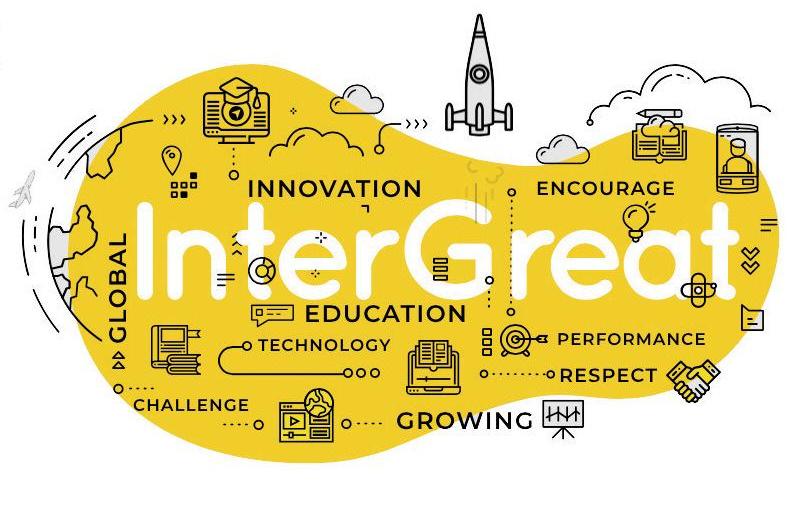
9 minute read
CrACkPoT or CrACkED PoT?
In the second of this three-part series
Dr Christopher Thurber, PhD, Phillips Exeter Academy, Exeter, New Hampshire, United States, and Nick Fair, Westminster School, London, England, United Kingdom, take a look at:
Standardised testing, student mental health, and the future of boarding schools
Crackpot or cracked pot
In part one of this three-part series, we discussed the deleterious consequences of contemporary education’s emphasis on standardised testing. Here in part two, we turn our attention to qualitative assessments that are less deleterious to students’ mental, emotional, and social health (MESH).
Quantitative backdraft
The fact that frequent assessment may lower students’ pleasure in learning is akin to digging up young vegetables in the spring to check whether their roots are healthy. You get data but also perturb the organism; performed too frequently, you stunt its growth or worse. Said differently, test scores are not benign; they either buttress or dismantle students’ perceptions of their own efficacy. They provide valuable, but circumscribed, information that, when given too much importance or administered too frequently, becomes iatrogenic. In other words, the assessments inadvertently harm some of the people they were designed to help.
Widespread testing has, like university admissions competition, motivated entrepreneurs. Private standardised test tutors and for-profit summer test-prep programs have proliferated. Here, too, we find iatrogenic effects. Although expensively prepared students realize higher test scores, they also realize that numbers matter more than creativity, kindness, or comradery. Worse still is the gradual fixing of their mindsets as highly competent in certain domains and perpetually mediocre in others.
In a study conducted at the University of Bristol(Broadfoot, et al, 2004), researchers found that students’ views of their effectiveness and confidence as learners dropped significantly as they moved from Key Stage 2 to Key Stage 3, the transition from primary to secondary school. This finding is particularly troubling alongside a study conducted by Carol Dweck at Stanford University, in which a mixed-ability group of students was given a maths test that took the form of a booklet of problems(1999). Some of the students were given the booklet with problems inserted in the middle that were nearly impossible to solve; other students were given the booklet without these harder questions. Dweck observed that students with the hard problems in the middle of the test did significantly worse on subsequent questions within their range of ability, compared to those who had worked on the standard booklet. The sub-group most affected by the experience of extreme challenge was highachieving girls. In other words, some high-achieving students have low levels of resilience and they often don’t know what to do when they don’t know what to do.
Dweck is also well-known for her research demonstrating that mindset matters. When students are told that questions are problems rather than puzzles and that results will be scored rather than discussed, their performance drops. Findings like this leave one wondering what happens when schools, exam companies, and many families implicitly frame a standardized test as one of the most important indicator of a young person’s competence.
83
?Crackpot or cracked pot
Qualitative ignition
Most professional educators Claxton then suggested a significant change also feels (Eschew the label nonagree that a pillar of their number of competencies risky…and trepidation delays cognitive for these mission is to prepare that could help respond to action. psychosocial skills. They all students for the future, even these challenges and that require considerable if that future is uncertain. could form the basis of From content to cognition.) The emphasis on Guy Claxton(2008)provided schools’ curricula: human process a healthy combination of a litany of 21st-Century rights; statistics and Schools may claim that skill acquisition and mental challenges schools should probability; empathy; risk many of the competencies habits is embodied by the respond to: social regulation management; Claxton encourages are award-winning Mastery and anarchy; the decline of negotiation/mediation; already woven into their Transcript Consortium community cohesion; the ecology; epistemology; curricula. But Claxton’s point (MTC). effects of long distance collaboration; literacy; global is that these modern travel; the 24/7 pace of life awareness; imagination; proficiencies are more In their words: “The MTC and its impact on people’s ethics; healthy skepticism; mental habits to be practiced model is substantively physical and mental health; body awareness; than bodies of knowledge to different from the traditional the increasing North-South neuroscience; resilience; be memorized. For example, model of assessment that is divide of the world; the creativity; will-power; giving statistics, in Claxton’s view, typically organized around effect of the rise of women and taking feedback, and should be less about passing content-oriented courses, on the place and identity of relaxation. A prodigious and exams that require plugging Carnegie units for credit and men; the effects of the prescient list, to be sure, data into memorized A to F letter grades.” In its exposure of a variety of notably missing any formulas and more about place, MTC has drafted a chemicals on the body; the suggestions of standardised creatively calculating risk colourful eight-part pie development of nuclear testing and the rote and responding thoughtfully. chart, where the size of each technology in the Islamic memorization necessary to slice “signifies complete world; caring for an perform well. Indeed, many Of course, healthy habits of mastery of a specific skill, increasingly elderly of these competencies could the mind do require a fund knowledge block or habit of population; increased not even be measured in a of knowledge to function. mind as defined by the competition for scarce valid fashion with a typical However, the primary fuel of crediting high school.” resources; the decline of standardized test. A cognitive alacrity is not facts some religions, and the rise revolution in educational and figures, but curiosity, The description goes on to of fundamentalism and process and content could exploration, flexibility, say: “MTC schools will be cults. be exhilarating. Yet creativity, and perseverance. supported by a technology
>>> platform that allows the complete record of a student’s credits, institutional standards, and performance evidence to be submitted to college admission offices for evaluation. This electronic Mastery Transcript will allow college admission officers to dive deep within a transcript to see the specific standards of the sending high school and actual evidence of student work and mastery, thus giving depth and transparency to the student’s work record.”
Claxton’s ideal is at odds with the results of a MORI poll carried out for the Campaign for Learning in 2000, 2002, and 2004. This survey asked more than 2,000 11-16-year-olds to name the three most common activities in their classrooms. Some 60% of the sample (in all three years) said, “copying from a board or book.” This was closely followed by “listening to the teacher talk for a long time” and “taking notes while my teacher talks” (Claxton, 2008, p. 22). So it seems many professional educators pay only lip service to Claxton’s 21st-Century competencies or Trilling and Fadel’s (2009)21st Century Skills, the latter of which was generated by asking corporate executives what they most needed in new employees.
These results highlight the importance of a school’s implicit curriculum, defined as “the messages conveyed by how the school is run”, and the school’s null curriculum, defined as “what is not taught” (Eisner, 1994). The implicit includes everything from the school’s architecture and furniture to teaching styles and disciplinary practices. The null curriculum is most frequently manifest in two main areas: intellectual processes and subject content. For example, most schools over-emphasize writing (i.e., they do not make much room in the curriculum for other ways of expressing thinking) and they underemphasize arts, culture, and social science (i.e., they do not include many topics that are as valid as maths and physical science).
Seen through Eisner’s lens, it becomes clear that although schools may purport to teach their students many modern proficiencies, students will not learn these competencies unless they have experiences that leave them with a disposition embody them, rather than just completing a written assessment on them. Today’s students and the professional educators entrusted with their
development cannot simply read about Claxton, Trilling, and Fadel. Contemporary pedagogies—such as the flipped classroom, experiential learning, and self-paced online coursework—must immerse students and teachers in an interactive space that pushes not the limits of memorization but the limits of originality, teamwork, and cross-cultural agility. In many parts of the world, the Internet has supplanted teachers as the curators of information. Successful teachers no longer defend and dribble information, they design experiences and experiments during which students discover the why and the what next related to that information. Engaged in this way—both cognitively, socially, and emotionally, these students do commit lots of content to memory, but as an epiphenomenon of a different approach to learning.
Boarding tomorrow
Our combined 33 years of professional experience in boarding schools in the UK and the US, compels us to believe that boarding education plays a more important role than ever in exposing students to these sorts of dispositional experiences and experiments. Great 21st-Century teachers and professors are intellectual coaches who curate content as a sideline and instead ask polemical questions, provide intriguing case studies, and above all guide encounters with information that nurture new ways of interacting with others and the world. It seems to us that boarding schools in the 21st Century are ideally-suited to provide what the itinerant Ted Dintersmith (2018) refers to as PEAK learning principles: purpose, essentials, agency, and knowledge.
21st-Century educators must also understand and nurture their students’ mental, emotional, and social health (MESH) needs. Once derided as “soft skills,” these dimensions of emotional intelligence are now widely understood to be essential ingredients of personal and professional success. Artists, doctors, engineers, lawyers, managers, scholars, and entrepreneurs must be culturally agile, empathic, skilled at collaborative problemsolving, deft at giving and receiving feedback, able to manage stress in healthy ways, and nimble at capitalizing on the character strengths of their colleagues and themselves. Which brings us back to the cracked pot. Dr. Christopher Thurber is devoted to educating leaders using innovative content that stirs thinking and compels action. An entrepreneur from a young age, Chris is the co-founder of ExpertOnlineTraining.com, the Internet’s most popular library of educational videos for youth leaders and of Prep4Schoo.com, which prepares Asian students for boarding school. He has been invited to deliver keynotes, contribute articles, and lead workshops at schools and camps on five continents. Learn more about Chris’s books, articles, videos, and in-person workshops by visiting https://DrChrisThurber.com


Nick Fair is an educationalist with over 13 years combined management and teaching experience at two prestigious public schools in the UK: Gordonstoun and Westminster, where he is in the sixth year of his tenure as a House Master. A champion of exploring innovative ways of teaching and engaging multiple stakeholders, Nick has successfully overseen important changes to the structure of the oldest boarding house in the UK. Learn more about Nick’s strengths and experience by visiting https://www.linkedin.com/in/ nick-fair-46687a23/










